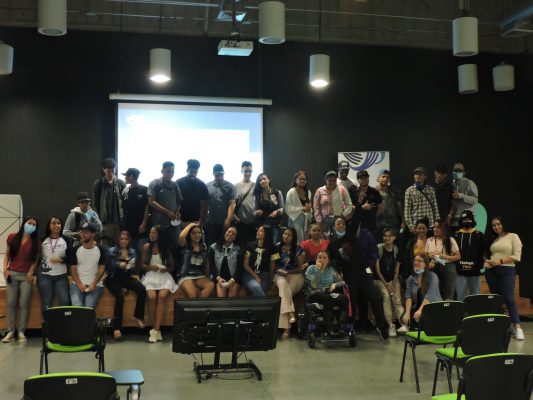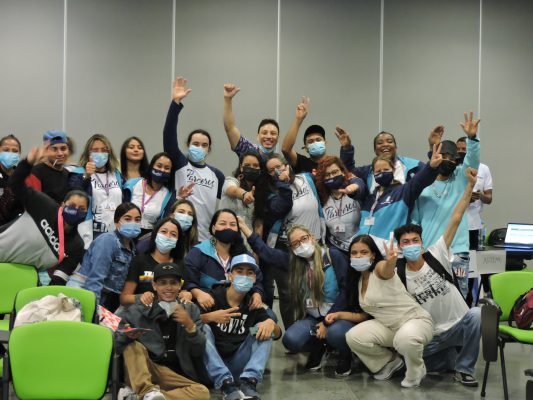Execution: Junio – Diciembre 2021
Places: Medellín, Antioquia- Bayunca, Cartagena-Bolivar/ Colombia
Beneficiarios:
135 young people between 14 y 28 years old, from Medellín Antioquía and Bayunca, Cartagena -Bolivar.
Execution: Junio – Diciembre 2021
Places: Medellín, Antioquia- Bayunca, Cartagena-Bolivar/ Colombia
Beneficiarios:
135 young people between 14 y 28 years old, from Medellín Antioquía and Bayunca, Cartagena -Bolivar.
Allies:
Ruta N
Alcaldía de Medellín
NEX
Disruptia
This project wants to accompany the development, the arrival in markets and the connection with sources of impact investment to initiatives of innovation and social entrepreneurship in Medellín and the metropolitan area, in order to influence the generation of solutions that improve the quality of life. of the population and solve city problems, seeking to develop knowledge appropriation mechanisms that guarantee citizens, as users and producers of technology, to contribute to the potential development of social enterprises.
Identifying opportunities for social transformation through the promotion of social innovation initiatives and in general the qualification of human talent, especially in conditions of vulnerability (such as people with disabilities and young people who are in criminal responsibility centers or at risk of recruitment by groups outside the law).
This training process uses as a conceptual basis, the ICT appropriation model developed by MAKAIA, through which a person starts with learning needs and through awareness, training and self-study processes, reaches a state of ICT appropriation on which you can apply immediately.
This process becomes evolutionary, making the person acquire more skills and appropriate more tools.

Diagnosis:
Sensitization:
Training:
life skills:
Duration: Twenty-eight (90-100) hours of training per group

General objective
Implement experiential methodologies to develop competencies in life skills, entrepreneurship, employability, and technical skills.
Specific objectives
